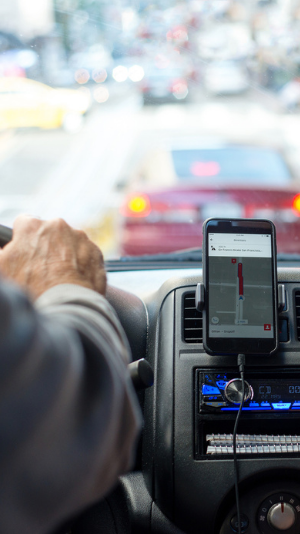[ad_1]
Recently I had dinner with friends who run a business, and the conversation turned to buying new cars. The “buy versus lease” question was asked of me, the so-called tax expert at the table. As always, I don’t answer any tax questions until I have time to double-check the tax law. I told them to keep an eye out for my latest blog. So, to all who are wondering…here it is!
As with most decisions in life, taxes should only be one of the considerations. Here are a few of the non-tax considerations on buying or leasing a business vehicle:
- Number of miles you drive each year: leased cars are often charged extra fees for miles driven over 10,000 or 12,000/year.
- How long do you keep a car: do you get a new car every 3-4 years or keep it until it’s junk?
- How much do you want to spend on your monthly payments: lease payments are usually quite a bit less than monthly payments on a car loan.
Now let’s talk about the tax benefits for the self-employed taxpayer and his or her car used for business. With both purchased and leased cars, you can deduct the related expenses by using the standard mileage rate or actual expenses. Note: If you own the vehicle, you can choose the standard mileage rate in the first year and switch to the actual expense method in a later year if it becomes more favorable. If you lease a vehicle, you may also choose the standard mileage rate in the first year, but once you use the standard mileage rate, you must use it for the life of the lease. Keep in mind that whether you lease or own your car used for business, you have to pick between standard mileage rate (deducting business miles driven) and claiming actual expenses (which would include car payments or lease payments.
With the standard mileage rate, your business mile deduction will be based on 67 cents per mile for 2024 (65.5 cents per mile in 2023). You can also deduct business-related parking fees and tolls. For the purchased vehicle, you may also be able to deduct a portion of the interest on your car loan. Under the actual expense rules, for both leased and purchased vehicles, you can deduct the business percentage of your gasoline, oil, insurance, garage rent, parking & registration fees, lease or rental fees, repairs, tires, loan interest, etc.
Purchased vs. Leased Vehicle Expenses
Some expenses differ between purchased and leased vehicles using the actual expense rules, and because you don’t own a leased vehicle, you can’t depreciate it. However, you can deduct the business percentage of your lease payments. So if your yearly lease payment is $4,200 ($350/month) and your business use percentage is 80%, you may be able to deduct $3,360 on your tax return for that year.
There is one hitch: since the tax code limits the depreciation on “luxury” cars, it also limits (to a very small degree) lease payments on such a car. It’s called a “lease inclusion amount,” and it reduces the deductible lease payments. The higher the original value of the car, the greater the amount.
As the price goes up on the car, leasing usually becomes more preferable. But don’t forget if you purchased the vehicle, you can also deduct the interest on the vehicle’s loan based on the percentage of business use. If you purchased a car this year to transport passengers for self-employment jobs like Uber and Lyft and you bought a sports utility vehicle, you may be able to deduct up to $30,500 for 2024 ($28,900 in 2023) of the cost of the vehicle if you use it more than 50% for your business. If you purchased a car for your business, you may also be able to deduct up to the depreciation deduction allowed if your business use is more than 50%.
There is one more difference between buying and leasing a business vehicle, which is the disposition of the vehicle. When you dispose of a business vehicle that you own, there may be a taxable gain or deductible loss. The portion of any gain that is due to depreciation will be taxed as ordinary income. When you return your leased car to the dealer, there is no taxable gain or loss.
No matter what moves you made last year, TurboTax will make them count on your taxes. Whether you want to do your taxes yourself or have a TurboTax expert file for you, we’ll make sure you get every dollar you deserve and your biggest possible refund – guaranteed.
22 responses to “Buy or Lease Your New Business Vehicle?”
[ad_2]
Source link












